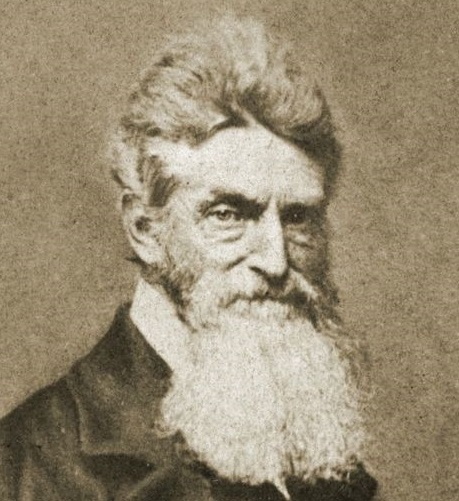Hmm today I will discuss outdoor cats on chapo dot chat
Idk I was joking about posturing towards outdoor cats struggle sessions on Chapo dot chat, I don't actually know anything about birds and cats besides doing the leo point when I see one of either
For instance, habitat loss is thought to pose by far the greatest threat to birds, both directly and indirectly, however, its overall impact on bird populations is very difficult to directly assess.
https://www.fws.gov/library/collections/threats-birds
deforestation, development and agriculture are, as ever, #1 by far. only climate destabilization will likely ever surpass the twin-headed monster of urbanization and monoculture eating the world and shitting out dollars. literally millions of acres of diverse, complex habitat are lost every year in the US alone, denuded, stripped, and converted to fragile, energy sucking moonscapes.
sure. the ways we, in particular, create built environments and the ways we, in particular, manage land to provision resources are intensely destructive in the era of cheap fossil energy. our concepts of urbanization and agriculture are contingent on destroying/displacing all biota that do not maximize monetary ROI. there is no reason we cannot have cities with habitats, enclaves, and carve outs etc for non-dangerous wildlife. the same is true for our agricultural systems. it necessitates a quasi deep ecology approach to the world and planning our use of space, and one that accepts the geographic linkages and accountability of densely planned metropolises for the hinterlands they enslave and destroy to feed, clothe, and entertain their inhabitants.
i am not against agriculture anymore than i am against urbanization, but we are doing them both in a way that needs serious reform.
could do slightly less dense cities with agriculture within the city like how Cuba does allotments
They are building offshore turbines in New Jersey and petty bourge with shore rental properties have been losing their minds.
Wealthy boomers all over the world are pissed that there may be something but water visible on the distant horizon.
The best part is that you will hardly be able to see them on the horizon, even on the clearest day possible.
There's been an increase in the number of beached whales and dolphins in the area and they've been pretending to care about that and arguing in bad faith that sonar mapping the ocean floor for construction caused it, but beachings have been on the rise before they started the sonar because water quality has improved in the area and it's just a side effect of having more whales and dolphins around.
"The burden of doubt is on the developers to prove without a reasonable doubt the projects will result in a net benefit."
🥴 Babies first rhetoric https://protectourcoastnj.com/
All this effort spent to respond to some bullshit they just decided to say probably as a joke at first
afaik the majority of the harm wind farms do to wildlife is the construction process and the noise they make leading to habitat loss
Nah they own birds for sure
The rotor diameter is like 100m+ at 20 rpm the blade tip is moving 200 mph
i know, i live near a wind farm
i'm saying that the collision deaths aren't the majority of the damage that wind farms do to wildlifeAhhh yes wildlife vs just birds I missed that. You are probably right I think when all species are included
I mean just looking at numbers is almost pointless. Cats usually live near cities or rural population centres and take out small/tiny birds. I doubt many care about a cat taking out a pidgeon or common sparrow/finch, there is already an overpopulation problem of these birds in cities thanks to a lack of natural predators.
The main problem with cats is when they end up in the native habitats of endangered small birds, which can lead to massive consequences, including extinction of the already endangered small birds. That's the big problem with outdoor cats, when they end up in those situations outside of major population centres, where they can inflict serious damage on biodiversity and ecosystems.
The problem with wind turbines with birds, is that they can be placed far from civilisation and take out large apex predator or scavenger birds, many of which are endangered. As well as the potential habitat loss of building a wind farm in a certain area. The article even mentions that.
While the relationship between wind turbines and different types of bird populations, particularly apex birds, is understudied, there is some evidence that turbines can hurt those populations. Hawaii, home to many endangered species, has taken extra steps to protect species that could be vulnerable to wind energy. The state requires all potential wind projects on both private and public land to have permits and conservation plans for the bird and bat population. Hawaii also documents animal mortality data from independent, third-party experts, with some wind farms subjected to steep fines for killing any federally protected birds.
common sparrow ... there is already an overpopulation problem of these birds thanks to a lack of natural predators
they are on the list of threatened species here, their numbers have drastically declined since i was a kid
they are on the list of threatened species here, their numbers have drastically declined since i was a kid

Wow, there's literally a sparrows nest in the building I live in. That's incredibly bleak. House sparrows are actually an invasive species here, the Cape sparrow is the native sparrow species.
house sparrows are an invasive species where you are but where they are from they are an important part of the ecosystem.
This is like when Americans say we don't need to save the bees because they are an invasive species in America
I would be more interested in how they affect suburbs, most urban cats are indoors. You'd have to look at internal suburbs, etc. IDK if we should just assume cats can have little a birds as a treat but it's a take for sure
Could be.
Already subject to steep fines just in case.
🆗
Nah outdoor cats are very destructive to the environment, I'm just saying the raw numbers aren't exactly representative.
Living within walking distance of a grocery store: evil, slavery, orwellian social control
driving 45 minutes on a congested highway to buy food: good, sensible, freedommaxxing
Clean coal is the future.
Sure let's take a huge portion of our energy output and dedicate it to the completely unproven technology of sequestering CO2 which we pinky swear won't ever fail and release that CO2 into the atmosphere anyway.
















